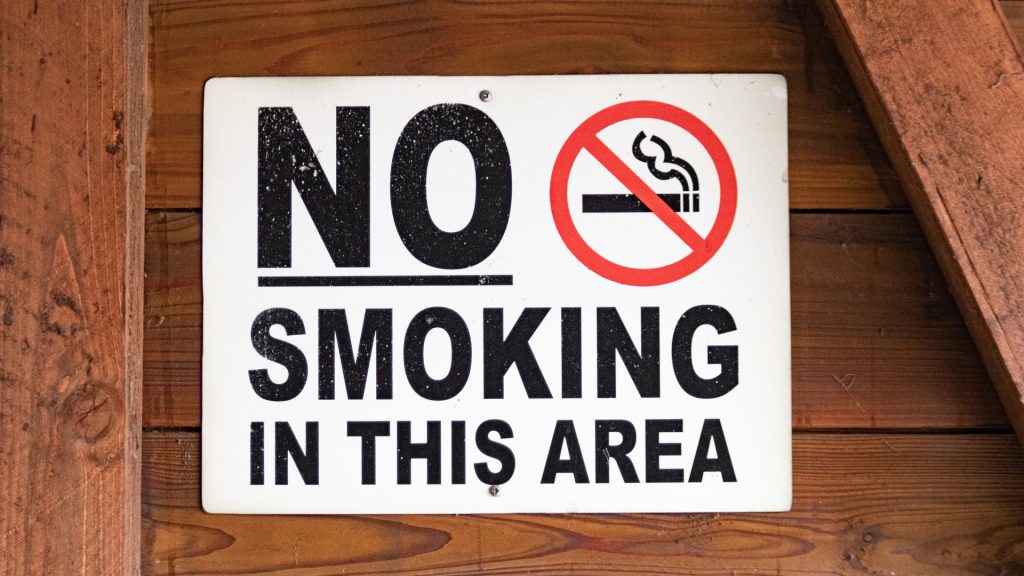The South African Department of Health has reintroduced the new smoking laws under the Tobacco Products and Electronic Delivery Systems Bill to the portfolio committee on health, reigniting efforts to pass stricter regulations.
This bill aims to regulate the sale, advertising, and use of tobacco products and electronic nicotine delivery systems, such as vapes. It introduces specific measures and strict penalties for those who violate the new rules.
The Department of Health (DoH) clarified that it does not intend to impose a total ban on tobacco products in South Africa. However, the proposed laws are designed to significantly restrict access, especially for children, discourage smoking, and promote quitting among current smokers.
A key focus of the new smoking laws is to protect children and non-smokers from exposure to tobacco smoke, imposing severe penalties on those who smoke in their presence.
Key Changes in the Proposed Bill
- Regulating the Vape Market: New rules will govern electronic nicotine and non-nicotine delivery systems, such as vapes.
- Plain Packaging: Tobacco products will require plain packaging with graphic health warnings.
- Ban on Display and Vending Machines: A total ban on displaying tobacco products at points of sale and on vending machines dispensing such products.
- 100% Smoke-Free Areas: Creation of smoke-free zones in indoor public areas and certain outdoor locations.
Regulating Vapes and Electronic Delivery Systems
The Department of Health highlighted the need to update existing laws to reflect the current state of the vaping industry, which is already in its fourth generation of products. There is growing concern over the marketing tactics that target youth, with many vape shops located near educational institutions. According to the Africa Centre for Tobacco Industry Monitoring and Policy, 39% of vape shops are within 10 kilometers of a university or college, and this number rises to 65% when extended to 20 kilometers.
“Nicotine is addictive and poses a health risk if not controlled. Various ingredients in e-cigarettes are known to be harmful,” stated the department. “The interaction of these ingredients in the body, and their impact on mental health, especially in a country with socio-economic challenges, needs careful regulation.”

Plain Packaging Requirements
Under the new laws, tobacco products will face strict packaging regulations. Packaging will be limited in terms of color, logos, branding, and promotional content. Instead, packages will display:
- Health warnings
- A uniform color scheme for the brand area
- Brand and manufacturer names
- Contact details
- Quantity of the product
Banning Tobacco Advertising at Points of Sale and Vending Machines
The Department of Health also plans to ban all forms of tobacco advertising, promotion, and sponsorship at points of sale. The sale of tobacco products via vending machines, which are currently used for both sales and advertising to all age groups, will also be prohibited.
Creation of 100% Smoke-Free Areas
One of the most debated aspects of the proposed legislation is the establishment of 100% smoke-free zones in public spaces and certain private areas, particularly those where children, employees, and non-smokers could be affected. The government emphasizes its constitutional obligation to protect all citizens from second-hand smoke, ensuring a safe environment for everyone.
Key Provisions for Smoke-Free Spaces:
- No smoking allowed in the presence of children, even in private enclosed spaces, childcare settings, schools, or tutoring environments.
- All indoor workspaces, including those for domestic and hospitality workers, will be designated as 100% smoke-free.
- Restrictions may apply to private vehicles and common areas of multi-unit residences where smoking could affect non-smokers.
Penalties for Violating the New Laws
The bill outlines severe penalties for those who fail to comply with the new laws, including:
- Fines or up to three months in jail (or both) for smoking in designated smoke-free areas.
- Fines or up to six months in jail (or both) for smoking in the presence of non-smokers or children.
- Fines or up to five years in jail (or both) for smoking in private dwellings used for childcare activities.
- Fines or up to ten years in jail (or both) for subjecting employees to smoking or not allowing them to exercise their right to a smoke-free environment.
The Legislative Process Continues
The bill was first introduced to the National Assembly on 31 May 2023, and public consultations have been conducted in several provinces, including the Eastern Cape, Free State, Gauteng, Limpopo, Mpumalanga, North West, and Western Cape. Consultations in KwaZulu-Natal and Northern Cape are still pending and will continue under the current administration.








